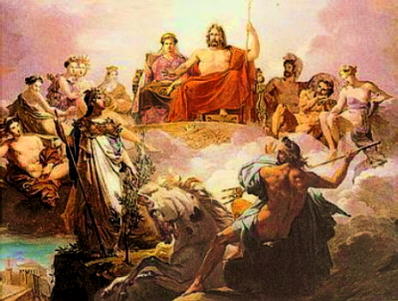A Few Paragraphs on my Path
by Julia Cybele Lansberry
 |
 |
|
I will try to summarize 'in a few paragraphs, but the
difficulty is that our paths are dynamic, progressive,
and not at all conducive to summation in a few "sound
bites". Probably this is true for anyone who has
followed any spiritual path of serious independent
inquiry as opposed to organizational indoctrination.
Three essays on the website give a good idea of what
my path actually is: A few excepts from these might work, if pulling a bit from context doesn't do too much damage. I was influenced a lot by Joseph Campbell, Merlin Stone, and Riane Eisler ... something of the realization that civilizations bear a spiritual / cultural heritage to which each of us "belongs" by nature and nurture. What we call "Western Civilization" has sturdy and vigorous Indo-European roots, over which Christianity has laid a somewhat alien veneer ... but in the process of conquest, that overlay itself has been under continuous transformation and reconquest by what it absorbed. The spiritual quest is to seek the origins, understand, and reconnect, thus completing the circle. Of course the Gods and Goddesses of Antiquity didn't pack up and leave, but are as much present as ever. To reach them requires deconstructing theologies and doctrines, and thereby clearing one's own vision. As recipients of this Indo-European cultural legacy, we could choose to reconnect with the continuous traditions still fluorishing in India, or seek out our own parallel traditions closer to home, in which the same divinities will be recognized under more familiar names. "Western Civilization" as such is essentially a hybrid of the Graeco-Roman and Romano-Celtic ... the authentic traditions are really pretty similar and have great kinship with those of India. Harsh, totalitarian monotheisms, out of the spiritual and literal desert, have not succeeding in paving over all that much. Political and religious traditions are part of one single package, and that's the simple reality. Democracy, liberty, and tolerance emerge from the polytheistic culture, while totalitarianism, "divine right of kings", absolute despotisms and such, emerge philosophically from monotheisms which promote the idea that there is but one universal truth, and they are fortunate to possess it ;) Most recently, I've found much inspiration in Alain de Benoist's wonderful text, _On Becoming a Pagan_, which connects philosophy, culture, and spirituality quite magnificently. Our distant ancestors didn't call themselves "Pagans" or wear any particular religious labels --- for temples, sacred groves and such were not "organized religions" in the modern sense. People could organize around a function, as did the Dendrophori, who also were "volunteer firefighters". People could dedicate themselves to the service of a God or Goddess, or if wealthy and grateful, build a temple or do some great public works project "ex voto", in appreciation. People could experience the Mysteries at sites like Eleusis, but it's a more open and fluid spirituality than is common today. It is not necessary for me to "accept" or "reject" any Divinity, but I do reserve freedom to reject or be highly skeptical of goofy dogmas and doctrines created by prophets, priests, potentates, and prevaricators. |
|
the epitome of all refinement and beauty throughout the ages, this page is given as offering by:
|